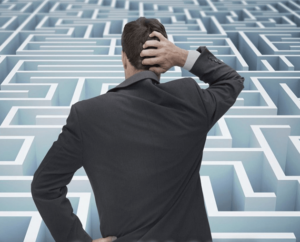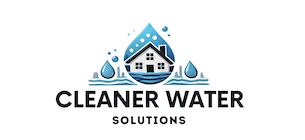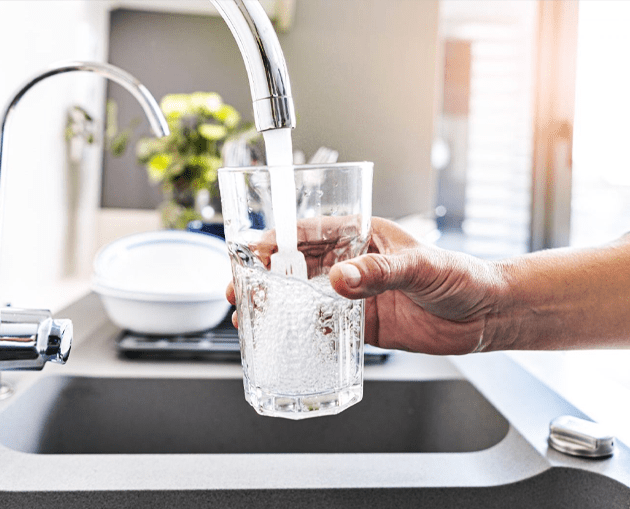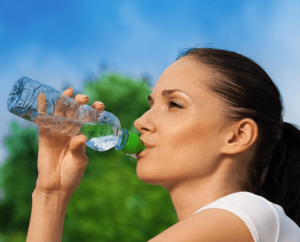When it comes to your home’s water, not all water is created equal. The difference between hard and soft water may seem like a minor distinction, but it can have significant effects on your household’s health, appliances, plumbing, and overall comfort. Understanding whether your home has hard or soft water—and determining whether softening your water is necessary—can make a difference in your day-to-day life. In this article, we’ll break down the differences between hard and soft water, the benefits and drawbacks of each, and why water softening may be important for your home and family.
What is Hard Water?
Hard water contains a high concentration of minerals, primarily calcium and magnesium, which are picked up as the water flows through mineral-rich soil and rocks. These minerals dissolve into the water supply and eventually reach your home’s pipes. According to the U.S. Geological Survey (USGS), water is considered “hard” when it contains more than 60 milligrams of calcium carbonate per liter. Most homes in the U.S. receive hard water to some degree, with particularly high concentrations in the Midwest and Southwest.
Signs of Hard Water in Your Home:
Soap Scum and Residue: Hard water doesn’t easily lather with soap, leaving behind a sticky residue on your skin, hair, and bathroom surfaces.
Dingy Laundry: Clothes washed in hard water may appear grayish or stiff after washing, and fabrics wear out more quickly.
Mineral Build-Up: Hard water leaves white, chalky deposits (known as limescale) on faucets, showerheads, and in appliances like dishwashers and washing machines.
Plumbing Issues: Over time, mineral deposits from hard water can build up inside your pipes, reducing water flow and potentially leading to costly repairs.
What is Soft Water?
Soft water, on the other hand, is water that has been treated to remove most of the calcium and magnesium ions. This process is typically accomplished through a water softener, which uses ion-exchange resins to replace the calcium and magnesium with sodium or potassium. Naturally soft water occurs in areas where the geology doesn’t contribute to mineral buildup in water sources, though many households rely on water softening systems to treat hard water.
Signs of Soft Water in Your Home:
Better Lather: Soft water easily lathers with soap and shampoo, leaving skin and hair feeling cleaner and more hydrated.
Cleaner Dishes and Clothes: Laundry feels softer and cleaner, and dishes come out of the dishwasher without spots or streaks.
No Scale Buildup: Appliances, plumbing, and fixtures remain free of the white, chalky residue that hard water leaves behind.
Health Concerns: Is Hard or Soft Water Better for Your Family?
Both hard and soft water are generally considered safe to drink, but there are some health considerations to be aware of depending on your household’s needs.
Health Concerns with Hard Water:
While hard water isn’t a direct health hazard, its high mineral content can cause some issues. The primary concern is that the minerals in hard water can contribute to dry, irritated skin and hair. According to the American Academy of Dermatology, bathing in hard water can exacerbate conditions like eczema, particularly in children. Additionally, hard water can leave a residue on the skin that may clog pores and worsen acne or other skin conditions.
On the positive side, the calcium and magnesium in hard water are essential minerals that contribute to bone health and heart function. Drinking hard water can be a source of these nutrients, though most people get enough calcium and magnesium from their diet.
Health Concerns with Soft Water:
The main concern with soft water is its sodium content. During the softening process, sodium ions replace the calcium and magnesium in the water, which means that softened water contains a small amount of sodium. While this amount is usually minimal, individuals on low-sodium diets or those with certain health conditions, such as high blood pressure, should be cautious.
Softened water may also strip the skin of some of its natural oils, though this is less common than the drying effects of hard water.
The Benefits of Hard Water
For some households, hard water may actually offer certain advantages:
Mineral-Rich Drinking Water: Hard water contains calcium and magnesium, both of which are important for maintaining strong bones and teeth. Although the mineral content is typically not high enough to replace dietary sources, it can contribute to your daily intake.
Potential Environmental Benefits: Hard water reduces the amount of sodium in wastewater, which may be an important consideration for homes in areas where environmental concerns about sodium contamination are high.
No Maintenance Required: Hard water doesn’t require additional water softening systems, which means fewer maintenance tasks and no need for regular salt replenishment in a softener.
The Benefits of Soft Water
Soft water offers a wide range of advantages, especially when it comes to protecting your home’s appliances, plumbing, and your family’s health.
Protects Plumbing and Appliances: One of the biggest benefits of soft water is that it prevents mineral buildup in pipes and appliances. According to the Water Quality Association (WQA), hard water can reduce the efficiency of water heaters by up to 48% and shorten the lifespan of dishwashers, washing machines, and other appliances that use water. Soft water, by eliminating mineral deposits, can extend the life of these systems and save homeowners significant money in repairs and replacements.
Easier on Skin and Hair: Soft water is gentler on the skin and hair, making it an excellent choice for households with sensitive skin or conditions like eczema. Soft water helps soap and shampoo rinse off more easily, preventing residue that can irritate the skin or lead to clogged pores.
Better Cleaning Performance: Soft water improves the performance of soaps, shampoos, and detergents, leading to cleaner dishes, brighter laundry, and shinier surfaces with less effort. Households with soft water use significantly less soap and cleaning products, which can lead to long-term savings on cleaning supplies.
Saves Energy: Because soft water prevents limescale from building up in appliances like water heaters, it allows them to operate more efficiently. This can lead to energy savings in the long run. According to the WQA, water heaters running on soft water use up to 29% less energy than those operating with hard water.
So, What’s Best for Your Home?
Choosing between hard and soft water depends on several factors, including your home’s water source, your household’s health needs, and the importance of preserving your appliances and plumbing.
When Hard Water Might Be Fine:
If your water is only moderately hard and you haven’t noticed issues with appliances, plumbing, or skin irritation, you may not need to install a water softener. The natural minerals in hard water are not harmful to drink, and some households may appreciate the mineral content for its dietary benefits.
When Soft Water is the Better Option:
If you’ve experienced any of the following issues, softening your water may be the best solution:
Frequent appliance breakdowns due to mineral buildup.
Dry, irritated skin or hair, particularly for family members with sensitive skin or eczema.
Plumbing issues from scale buildup in your pipes.
High energy bills caused by inefficient water heaters.
Conclusion
Whether your household would benefit more from hard or soft water ultimately depends on your specific needs and concerns. Hard water offers mineral content that may benefit your health, but it can also cause significant wear and tear on appliances and plumbing, while soft water provides improved efficiency, gentler cleaning, and longer-lasting appliances. Understanding the differences between the two can help you make the best decision for your home and family.
Taking the time to test your water, evaluate its effects on your household, and install the right filtration or softening system can make a world of difference in your home’s comfort and long-term upkeep.

The Growing Problem of PFAS: What You Should Know About ‘Forever Chemicals’



